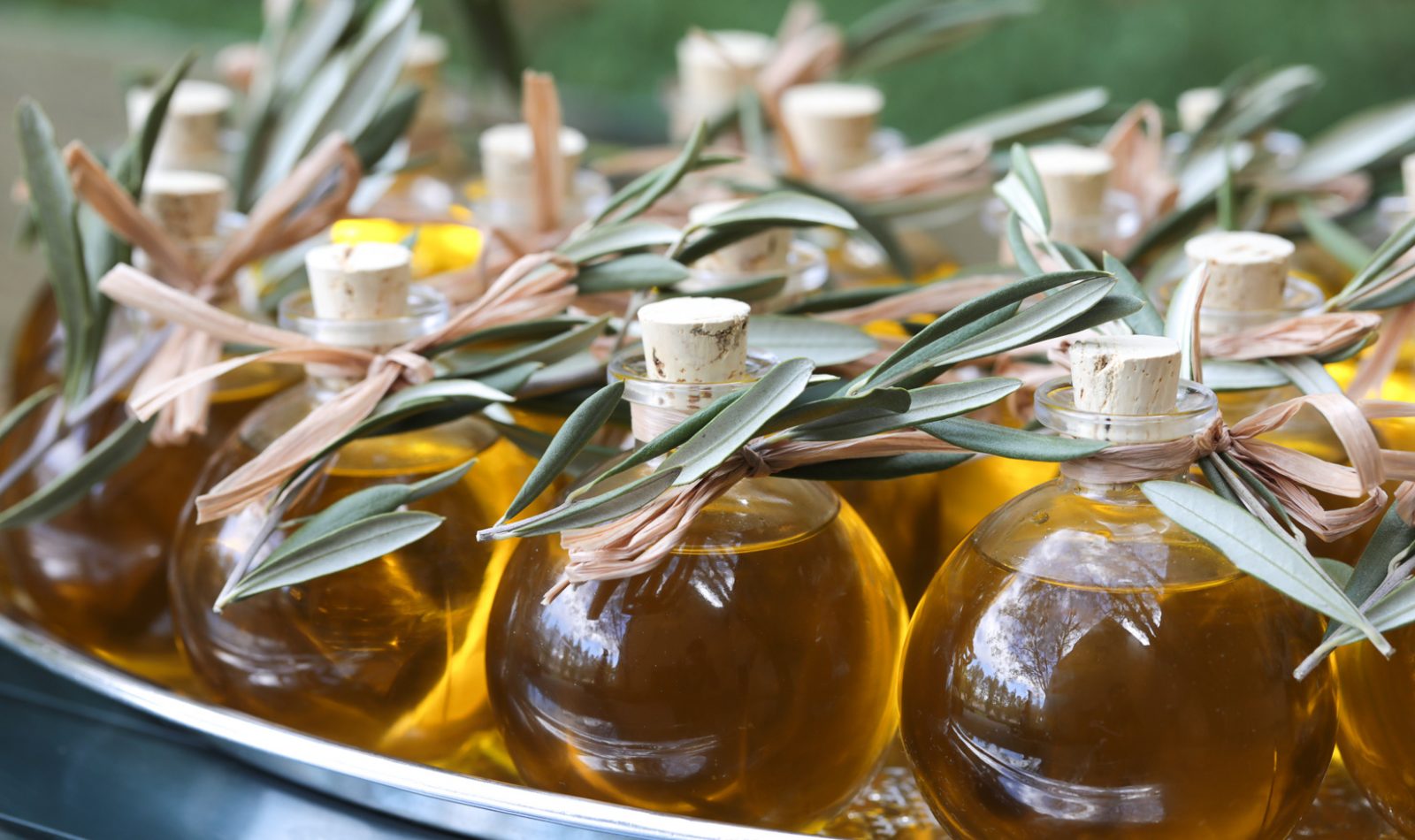
Olives and Olive Oil Health Benefits & Fun Facts
10 Things That Might Surprise You
Ever since Franciscan missionaries from Mexico first brought olive trees to California in the 18th century, Golden State farmers have been growing olives to produce olive oil and other olive products. Today, extra virgin olive oil has become as synonymous with Sonoma County as fine wine and craft beer–thanks to advancements in quality olive oil making and increased knowledge of extra virgin olive oil’s health benefits. Here are ten interesting things you may not have known about olives and extra virgin olive oil–from olive oil health benefits to trivia questions for your next dinner party.
10 Fun Facts about Olives and Olive Oil Health Benefits
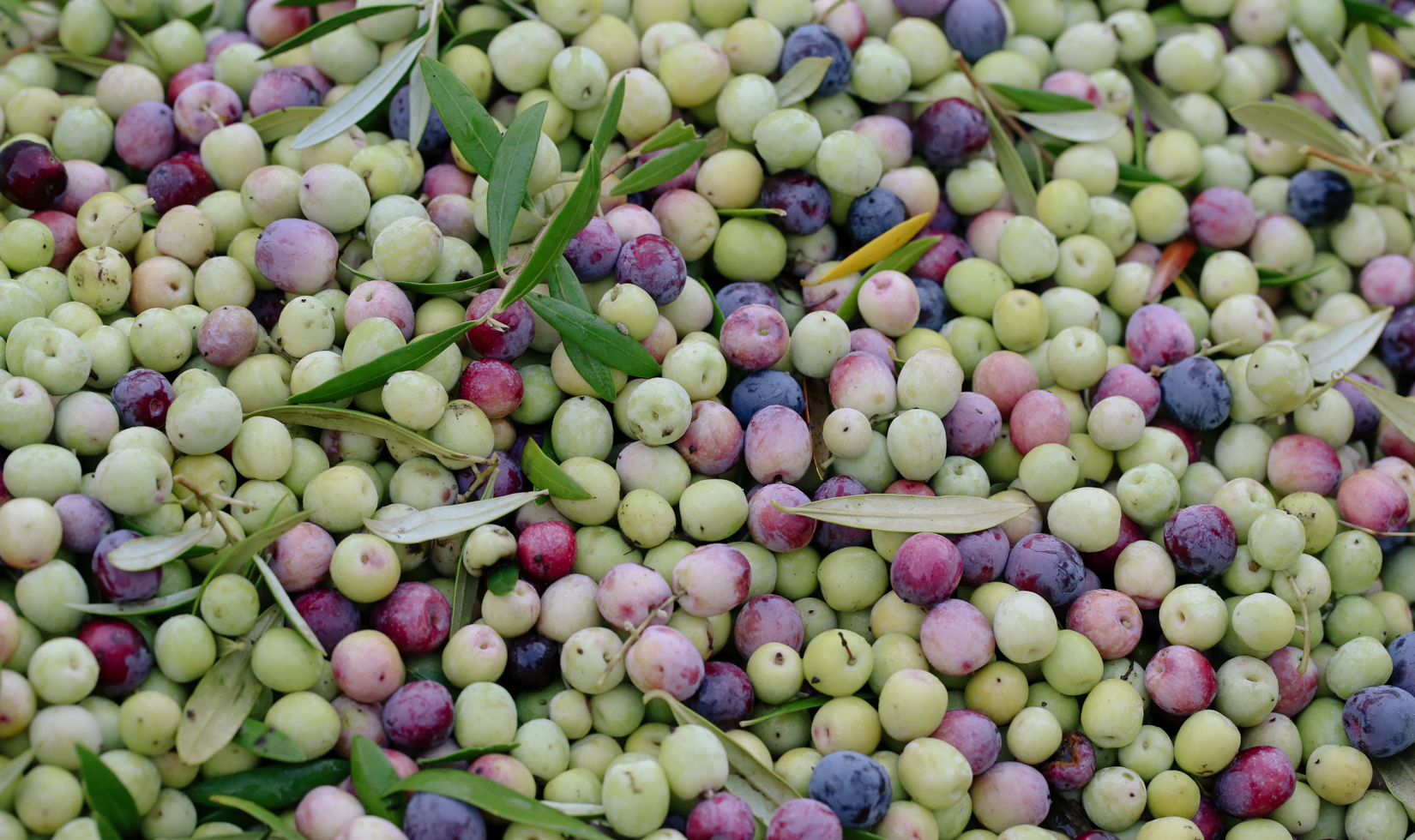
1. The only difference between green olives and black olives is ripeness.
Green olives are olives that are harvested before they ripen, while black olives aren’t harvested until they are fully ripe. Both green and black olives are inedible until they are cured in salt, brine, or water and the curing process is mostly responsible for the differences in flavor.
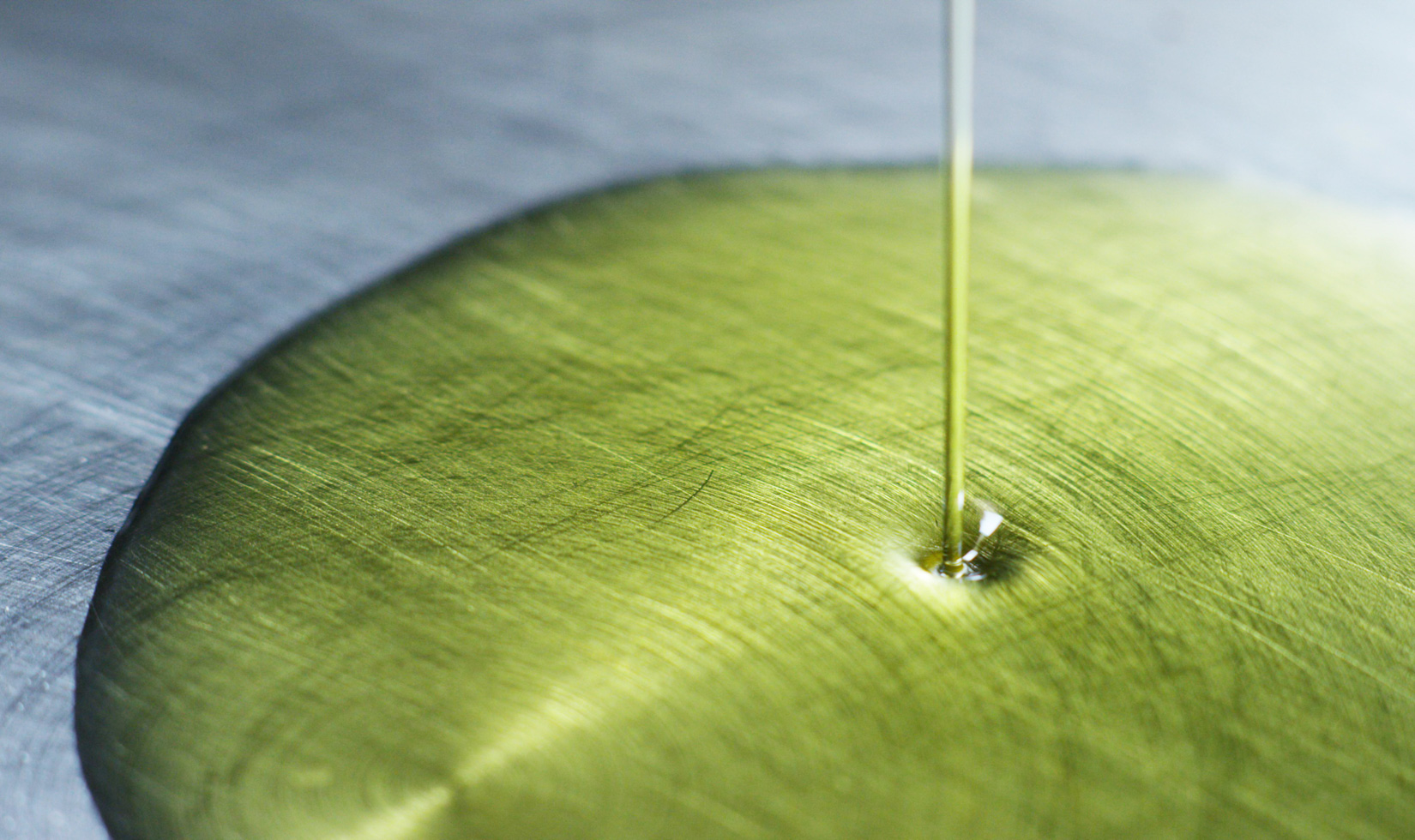
2. The difference between extra virgin olive oil and regular or “pure” olive oil lies in the process used to extract the oil from the olives, which affects both the flavor and smoke point of the oil.
Extra virgin olive oil is unrefined, which means that it is made by cold pressing olives to extract the oil. No heat is used in this process, so the resulting oil retains a lot its olive-y flavors. Regular olive oil (sometimes marked “pure olive oil”) is a combination of extra virgin olive oil and refined olive oil, which has a more neutral flavor and a higher smoke point. They can be used interchangeably, but you’ll get more flavor with EVOO. On the other hand, you can heat pure olive oil to higher temperatures without burning it, making it a better choice for cooking.
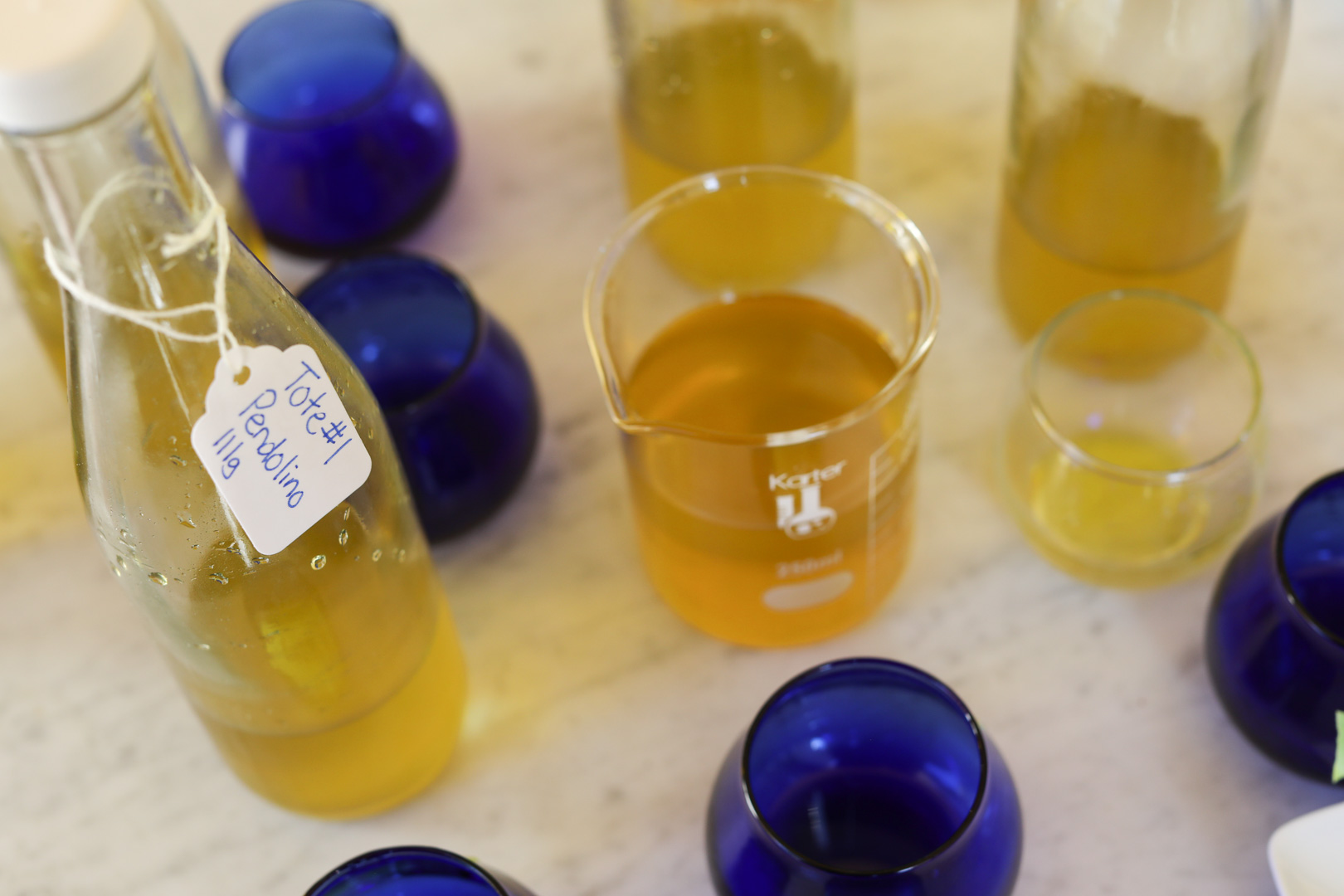
3. Extra virgin olive oil can reduce inflammation.
Extra virgin olive oil is high in oleocanthal, a natural compound that has the same anti-inflammatory properties as ibuprofen. Both ibuprofen and oleocanthal suppress the production of inflammatory prostaglandin.
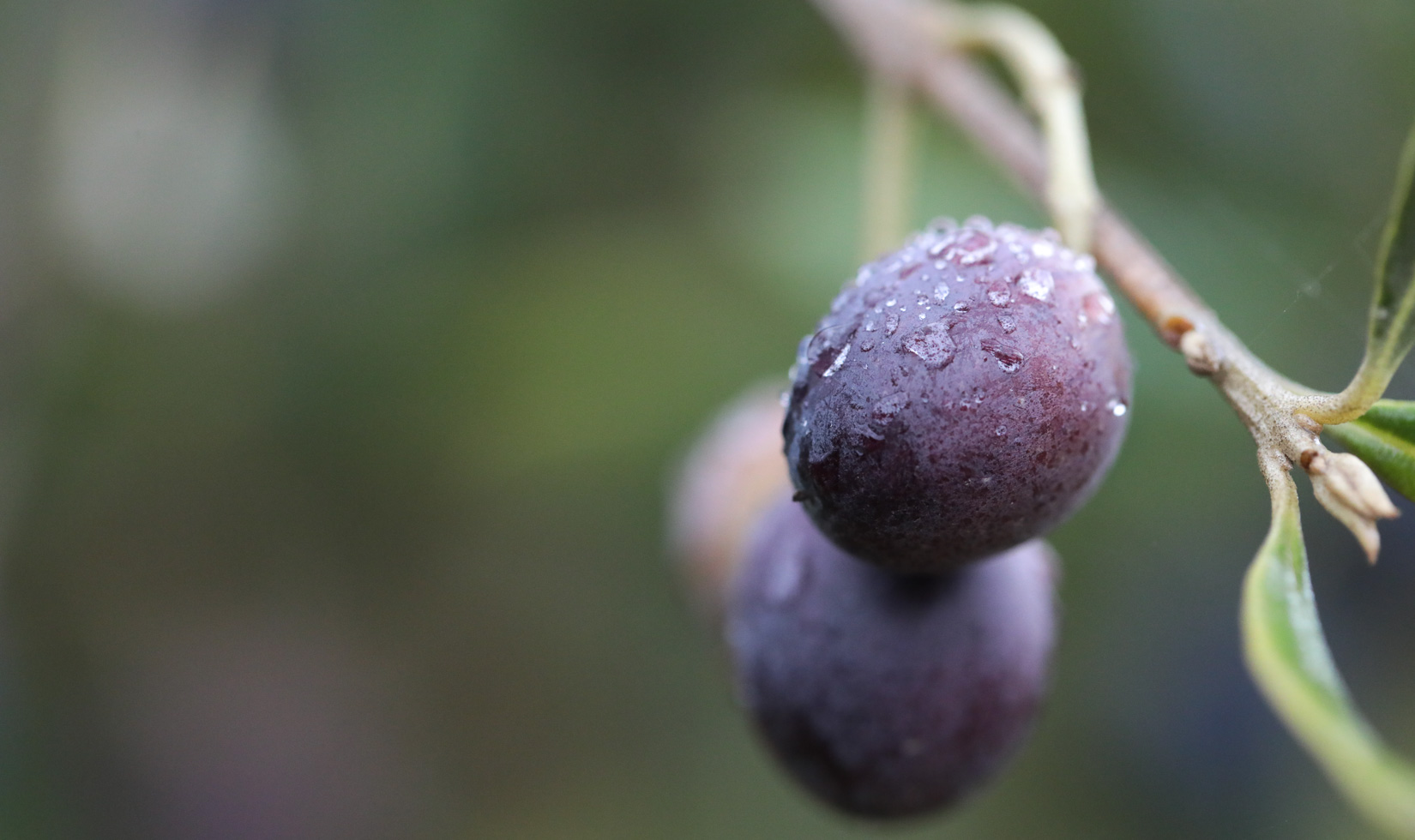
4. Olive tree crop size can vary dramatically from year to year.
Olive trees are alternate-bearing, meaning they produce an abundant crop one year (assuming ideal weather during spring flowering season) and then produce a crop of about half the size the following year.
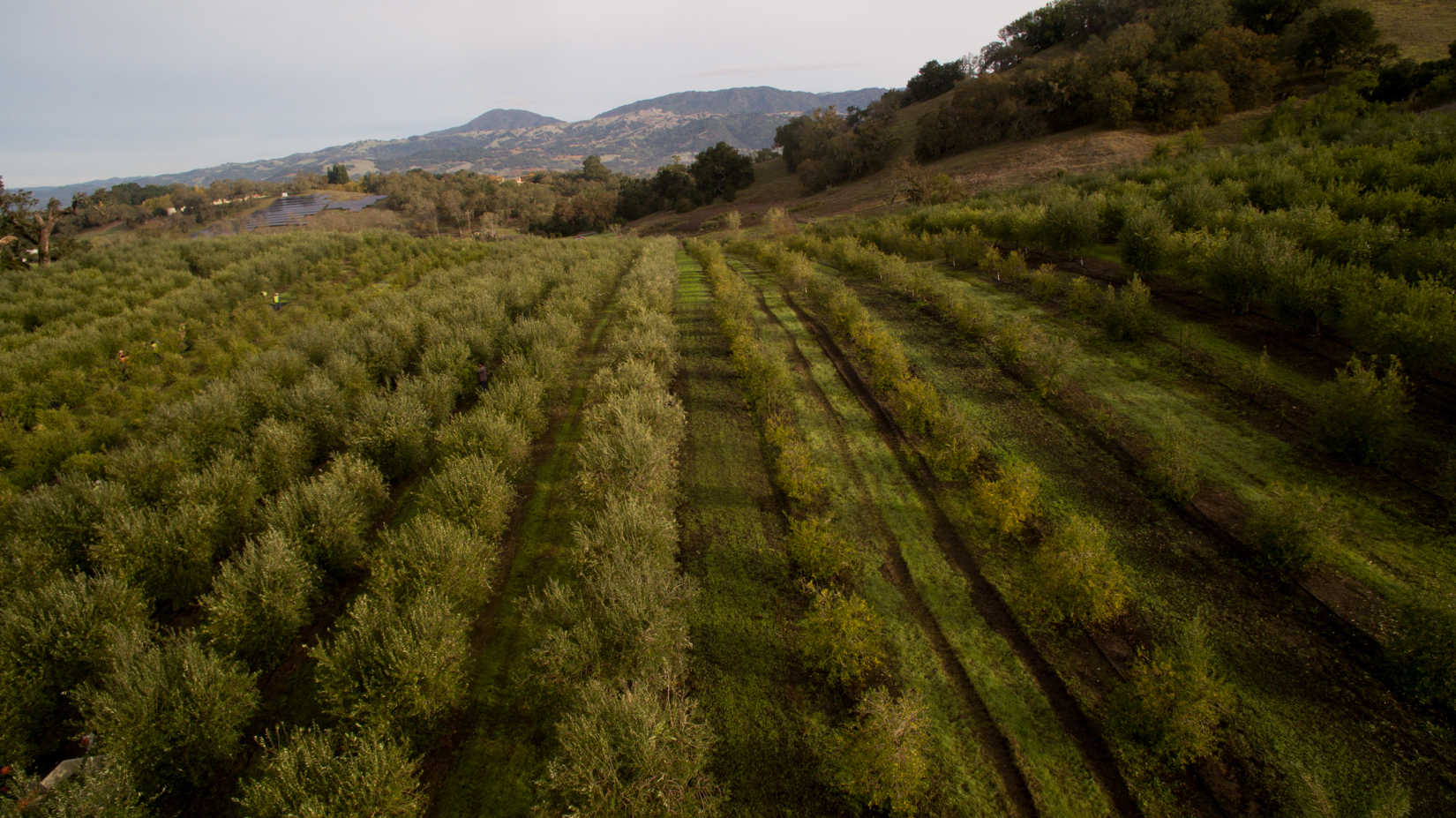
5. An olive tree can live up to 600 years.
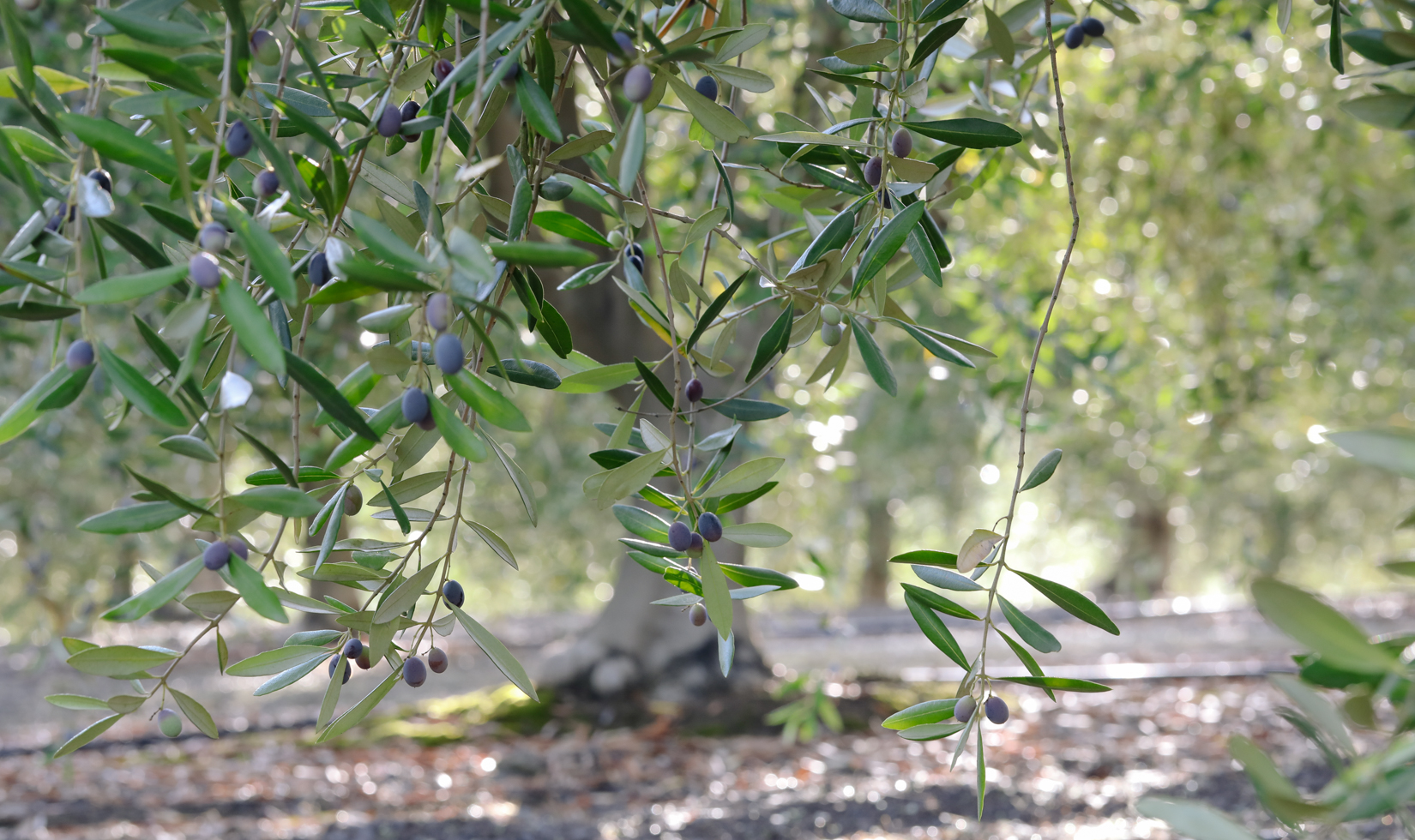
6. Extra virgin olive oil made from Tuscan olives has the highest concentration of polyphenols.
Polyphenols are chemical compounds naturally found in plants, which contribute to olive oil health benefits. They’re also antioxidants with myriad health benefits, such as combating cell damage and fighting diseases like heart disease, high blood pressure, cholesterol and some cancers. Due to the high polyphenol level in Tuscan olives from Italy, their olive oils often taste peppery, pungent and grassier than Spanish or French olive oils.
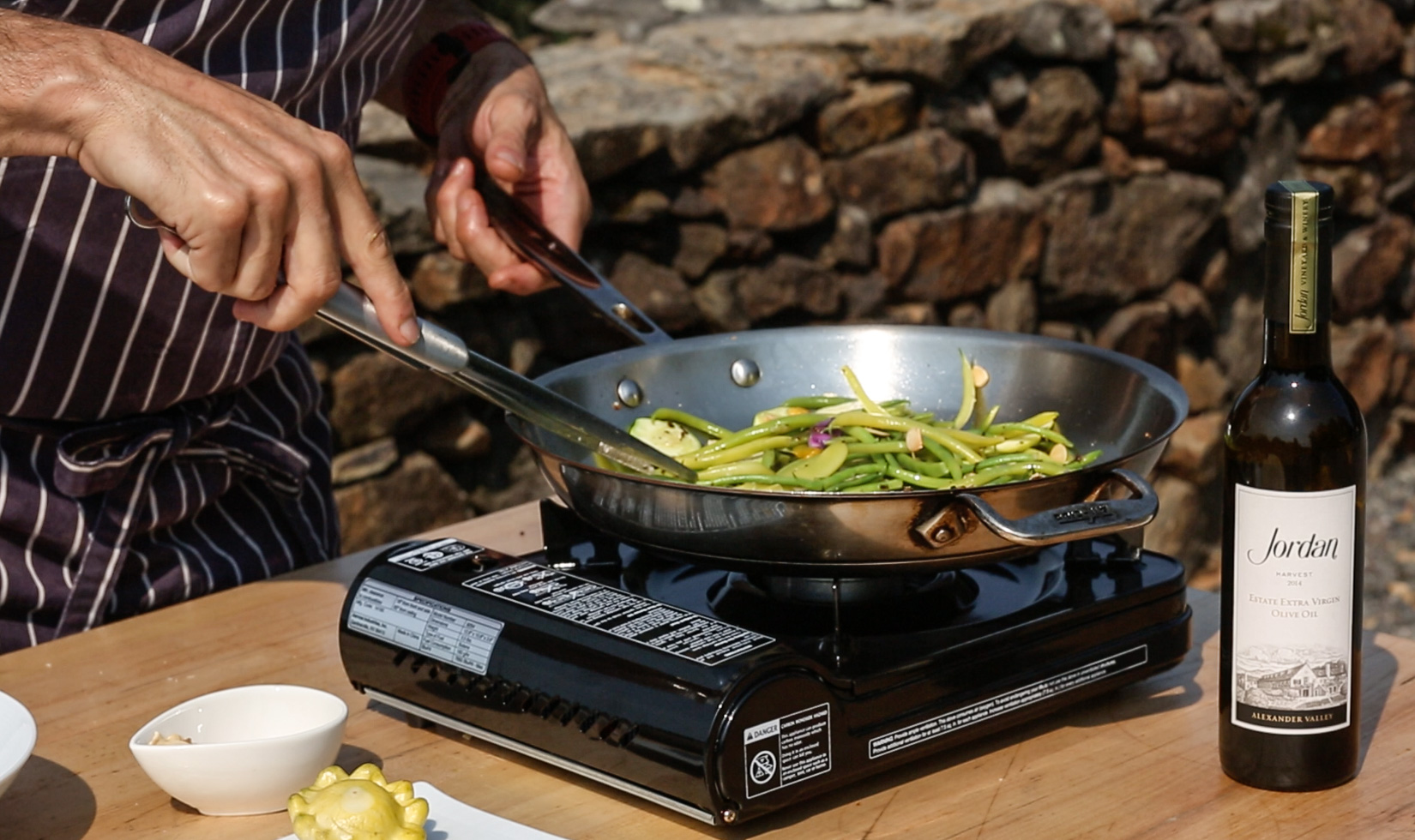
7. Most olive oils have a low smoke point, meaning that they aren’t appropriate for sautéing meats and vegetables.
The exceptions to this rule are high-quality extra virgin olive oils like Jordan Winery’s, which are low in free fatty acids. According to a study at the UC Davis Olive Center, EVOO has a smoke point of around 400 degrees Fahrenheit, which is high enough for most cooking applications. In fact, the UC Davis study shows that, when used for cooking, EVOO resists degradation due to its high levels of antioxidant polyphenols.
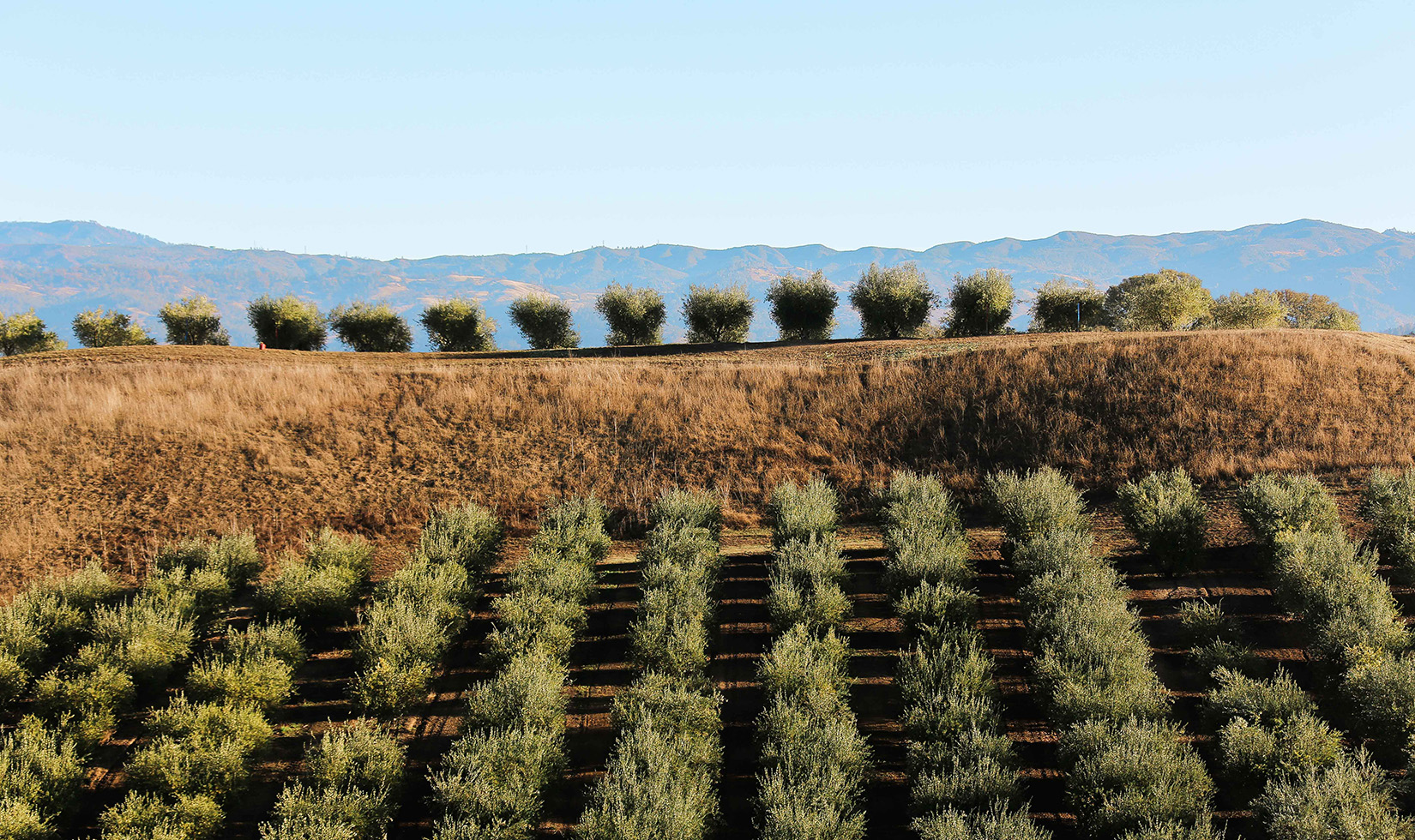
8. Many of the most sought-after olive varieties require a pollinator tree to produce fruit.
Picholine of France, Leccino, of Italy and Ascolano of Spain must all be planted with pollinating olive trees, such as the Italian Pendolino or Frantoio.
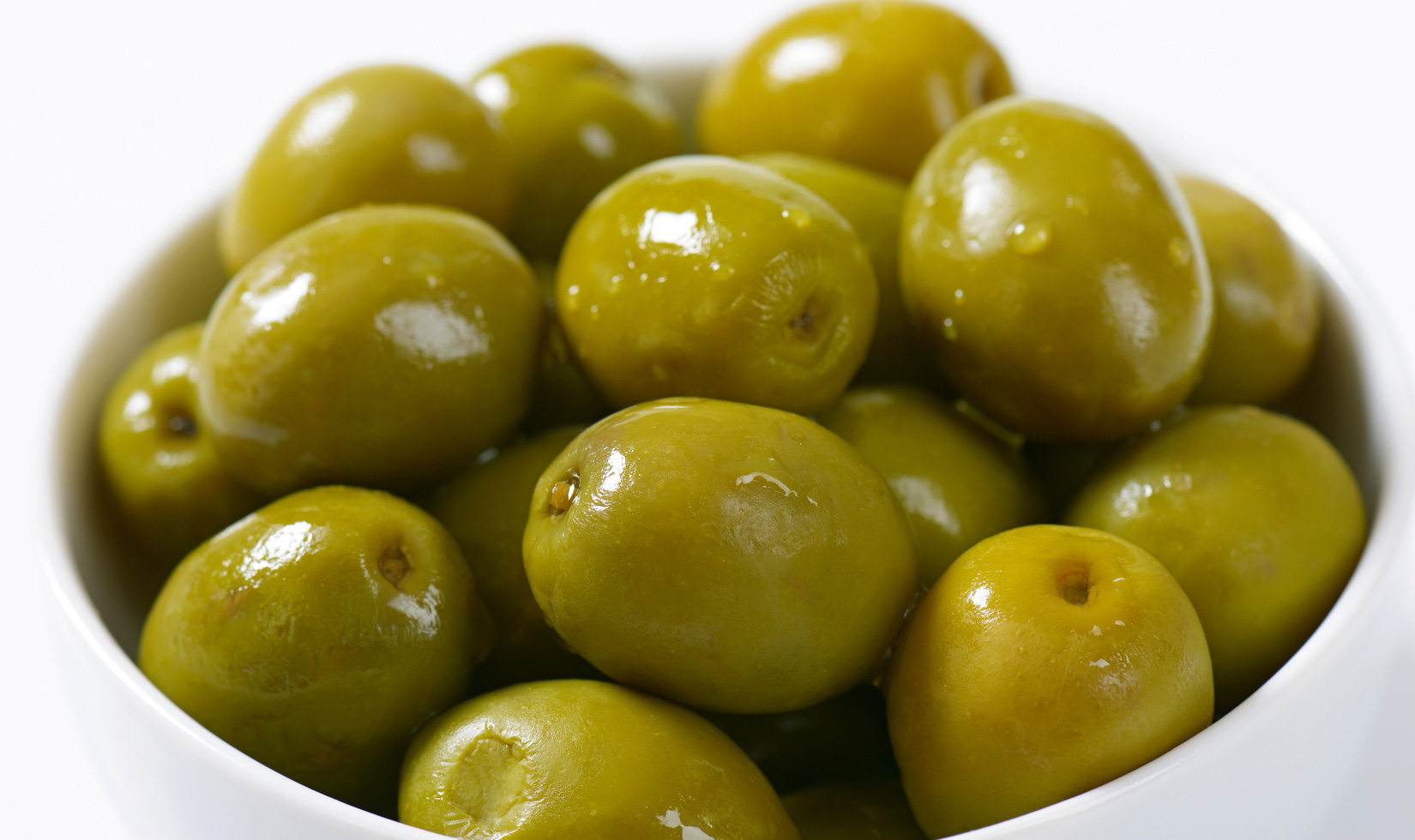
9. When stored properly, cured olives can last for six months or longer.
Salting is one of the oldest methods of preserving food. It also makes olives taste great with salt-cured meats like charcuterie. Storing salt-cured olives in the refrigerator is typical for varieties purchased from the olive bar at gourmet grocery stores, but be sure to add some brine to your container before you leave the store if you want the olives to last several months. Unrefrigerated, olives can also last up to six months, provided they are completely submerged in their brine, in a covered container, and kept out of direct sunlight.

10. The more flavors an olive oil has, the higher it is in antioxidants.
According to the California Olive Oil Council, the bitter, pungent flavors in olive oil come from antioxidants and polyphenols.

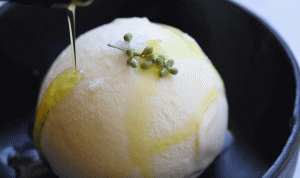


Love the info article on olives Lisa! Anything grown in the Jordan vineyards is A+ for our family – Cheers!